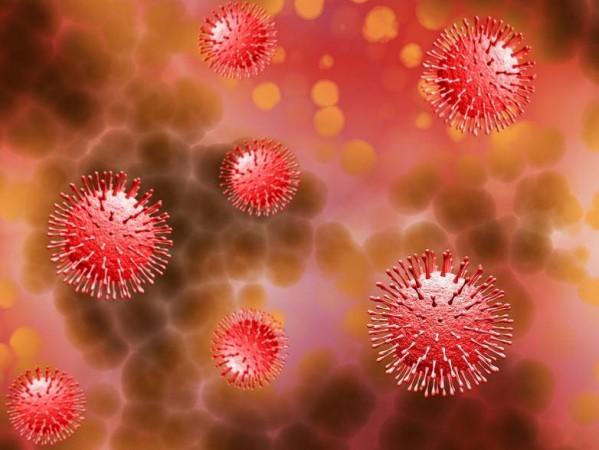Treating COVID-19 carries with it several burdens such as ensuring that patients do not require hospitalization, reducing the duration of symptom prevalence, and reducing the risk of death, among others. A drug or a combination of drugs that can enable this can turn the tide on the SARS-CoV-2 coronavirus. Now, a cocktail of two monoclonal antibodies has been found to deliver most of these desired benefits.
According to the latest results of a new Phase 3 trial, REGEN–COV—a combination of casirivimab and imdevimab—was found to not just reduce the risk of hospitalization or death in non-hospitalized COVID-19 patients, but also decreased symptom duration and viral load in them. The cocktail was found to cut COVID-related hospitalization and death by 70 percent in outpatients.
"The Phase 3 trial showed REGEN-COV helped patients avoid hospitalization or even death while speeding up recovery time. These results add to the growing body of clinical evidence, real-world experience and strong recommendations by the National Institutes of Health COVID-19 treatment guidelines that collectively underscore the urgent need to ensure all appropriate patients are treated," said Dr. Julie Philley, investigator of the trial, in a statement.
Stopping Mutants In Their Tracks

Composed of two potent monoclonal antibodies, casirivimab and imdevimab, which are also known as REGN10933 and REGN10987 respectively, the investigational cocktail was designed particularly to neutralize the novel coronavirus' infectivity. The two virus-blocking antibodies bind with the receptor-binding domain (RBD) of the SARS-CoV-2's spike protein. This enables in lessening the capacity of the virus' variants in evading treatment and offering protection against spike variants that have cropped up over the last 18 months.
In November 2020, the US Food and Drug Administration (FDA) issued an emergency use authorization (EUA) for the combined administration of casirivimab and imdevimab for treating mild to moderate cases of COVID-19. Therefore, under the EUA, REGEN–COV is not approved by the FDA but has received authorization for emergency use. REGEN–COV is administered intravenously (IV)
The EUA applies only to individuals who are 12 years of age and above, weigh at least 40 kgs, and are at an increased or high risk of progressing to severe COVID-19 and/or hospitalization. Patients who are hospitalized due to COVID-19, or need oxygen therapy, or are currently using chronic oxygen therapy on account of any underlying comorbidities, are not to be treated under the authorization of the EUA. In India, the Central Drugs Standards Control Organisation (CDSCO) recently provided an EUA for the casirivimab and imdevimab combination.
Evaluating the Cocktail's Efficacy

In the Phase 3 trial—which was a randomized, double-blinded and placebo-controlled study— the action of REGEN–COV in 4,567 adult outpatients withCOVID-19 was evaluated. For the trial, two doses of the combination were investigated—a 2,400 mg dose (which is currently authorized) and a 1,200 mg dose (which is being evaluated by the FDA). All the participants who were examined for the efficacy of the treatment had at least one factor that put them at risk of developing severe COVID-19. These factors included being over the age of 50 years, cardiovascular disease (CVD), obesity, and chronic lung disease (such as asthma), among others.
The patients in the trial were randomly assigned to the control group (drug combination at 2,400 mg or 1,200 mg) and placebo group, who received the assigned group-specific medications within seven days of onset of symptoms and within 72 hours of testing positive for SARS-CoV-2 infection. A follow-up was conducted for 28 days. During this period, the participants were subjected to nasal swabs and assessed for electronic clinical outcomes on a daily basis. Their safety was closely observed through medically attended visits.
Reduced Duration of Symptoms
It was found that patients who were assigned to the group which received 2,400 mg of the casirivimab-imdevimab combination had a 71 percent reduction in the risk associated with COVID-19-related hospitalization or all-cause death at 29 days when compared to the placebo group. Patients who were assigned a 1,200 mg dose of REGEN-COV 2 showed a reduction of 70 percent when compared to the group receiving placebo.

According to Dr. Philley, differences in primary outcome among the groups became evident by day four of the trial and continued all the way till day 29. Remarkably, both doses of the casirivimab-imdevimab cocktail were found to be associated with a shorter mean time of resolution of COVID-19 symptoms when compared to the placebo (i.e) 10 days Vs. 14 days.
Decreased Risk of Death
Both the doses of REGEN-COV were also found to reduce viral loads of the participants by 0.71 log10 copies/mL and 0.86 log10 copies/mL at 7 days when compared to placebo. Dr. Philley stated that the results were consistent across several subgroups. Importantly, the trial met its primary endpoint—the percentage of patients with at least one COVID-19-related hospitalization or all-cause death at day 29—and all the secondary endpoints. Additionally, a safety assessment was conducted in 5,531 patients till day 169. The safety profile proved to be consistent with data reported previously.
Serious adverse events (SAEs) were predominantly associated with COVID-19. SAEs were noted in 1.3 percent in the 2,400 mg group, 1.1 percent of patients in the 1,200 mg group, and 4.0 percent within the placebo group. While deaths were reported within the groups, they were significantly low compared to the size of the groups. 1 death was reported in the 2,400 mg group. In the 1,200 mg group, 1 death was noted. And within the placebo groups, 5 deaths occurred.
















